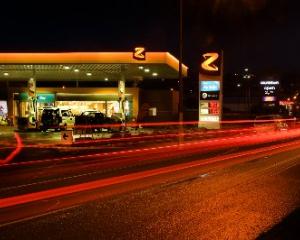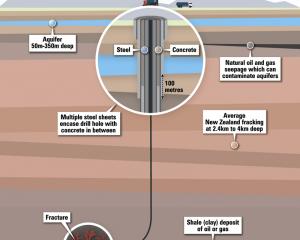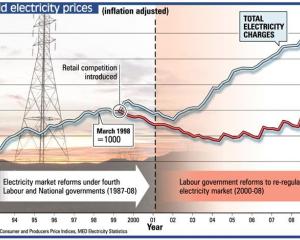Contact Energy will lower Lake Hawea below its statutorily imposed minimum level of 338m above sea level in the next few days, and says it will use the extra water very carefully.
But that was questioned yesterday by the chairman of Lake Hawea Guardians, who said Hawea and its surrounds would suffer for years if the lake falls to 336m.
The level of the lake stood at 338.198m at 3pm yesterday. Contact Energy said it was likely to drop below 338m on Monday or Tuesday.
But the company had resource consent - given certain conditions - to drop the lake another 2m.
Those conditions had been met.
Contact Energy spokesman Jonathan Hill said the extra 2m of water would be used very carefully through analysis.
The company could use the extra 2m of water in times of national interest when the electricity system required reserve capacity.
Mr Hill said the Clyde and Roxburgh dams, on the Clutha River, which is partly fed by Lake Hawea, have been running hard all week.
He said the company had been pleased with the tone of the meeting between Contact Energy's corporate affairs general manager Bruce Parkes, of Wellington, and Hawea residents earlier this month.
He acknowledged the residents had concerns over environment issues and the company was in almost daily contact with some Lake Hawea residents. But it was a hydroelectricity lake, and levels would change.
Guardians of Lake Hawea chairman Grant Fyfe called on the Government to acknowledge that New Zealand faced a power crisis and to take steps to protect the lake. He said an extra 2m would provide only 20 more days of draw-off.
The guardians vehemently opposed any reduction below 338m, he said.
"Hawea is going to suffer the consequences for months or years to come from having a lower lake, but the country as a whole isn't making any sacrifice."
Mr Fyfe said minimum operating levels were introduced in the 1970s when the lake fell to 327m, exposing river deltas and causing constant dust storms that carried as far as Ranfurly.
Energy Minister David Parker said the situation at Lake Hawea was a reminder that the environmental consequences of electricity production were borne mostly by people in small, distant communities, rather than in cities.
He said in a statement he did not criticise Contact, as it was exercising its right under the resource consent it had been granted.
The lower South Island was the poorest at saving power during the past week.
Statistics released by Transpower showed the overall national saving was 3.6% for the week to yesterday.
The upper South Island recorded the highest, with a 4.1% saving, while the lower South Island saved 3.2%.
Transpower chief executive and convener of the winter power group, Dr Patrick Strange, said there had been inflows throughout the week, so hydroelectricity lakes remained stable - with NZPA





